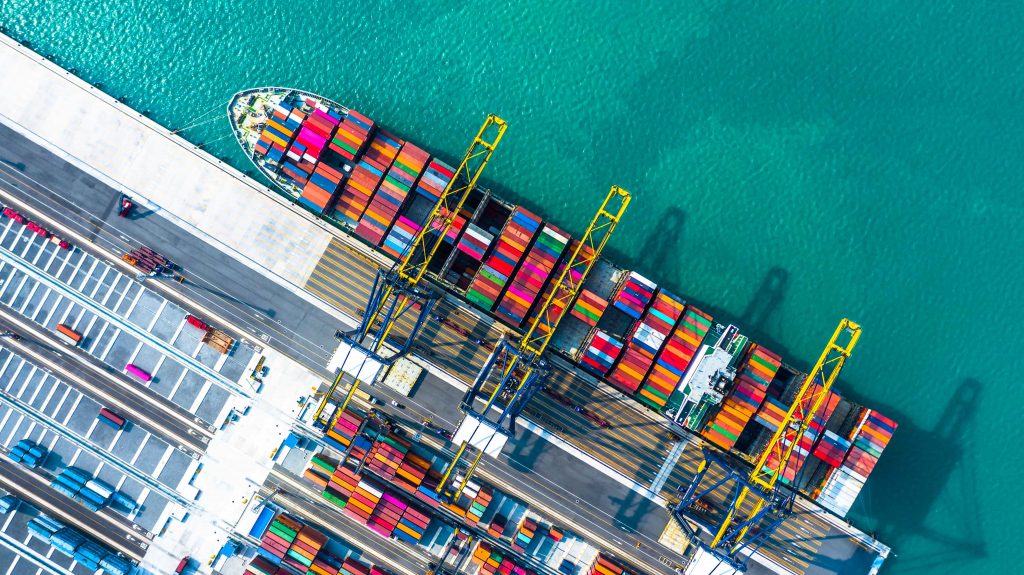
How to Import Goods to the UK
Posted on July 06 2023

Use this handy import guide to help you figure out how to import goods permanently from a country outside of the UK into England, Wales or Scotland, or from a country outside of the UK and EU into Northern Ireland.
1. Ensure your business can accept imports into the UK
2. Check whether the business sending the goods can export to the UK
3. Check if you need licences and certifications
4. Make an import declaration
5. Organise transport and get your goods across the UK border
6. Get your goods released at the UK border
7. Consider using an expert customs broker to help you with the importing process
Step 1: Ensure your business can accept imports to the UK
To import into the UK, you need an Economic Operators Registration and Identification (EORI) number. An EORI number is used to identify businesses during customs procedures when exchanging information between customs administrations.
To get an EORI number, your business usually needs to have premises based in the country you want to import to or export from. Your premises must be either:
- A registered office
- A central headquarters
- A permanent business establishment
If your business is not established in the United Kingdom, you must get someone to make the export declaration for you in their own name as an indirect representative.
Step 2: Check whether the business sending the goods can export to the UK
The business or person receiving your exported goods may need to:
- Make an export declaration in their country
- Have licenses or certificates to send goods to the UK
It is important to check what documentation will need to be completed to enable your goods to be exported to avoid unnecessary delays, issues and costs.
Step 3: Check if you need licences or certifications
You may need to get licenses and certificates if you are importing certain goods such as animal and animal products, plants and plant products, medicines, drugs, high risk food, chemicals, nuclear material, waste, human tissue or products containing fluorinated gas.
If you are importing plant seeds, food or manufactured goods, you will need to ensure your goods follow the correct marking, labelling and marketing standards.
Step 4: Make an import declaration
Before your goods board a vessel or train, you will need to make a full import declaration that includes:
- Customs Procedure Code (CPC). This is an HMRC code that describes the purpose of your shipment. The code is used to determine how your goods will be processed and how any duties and taxes will be collected.
- Commodity Code. This is a number allocated to goods to classify them for import. This code determines the amount of customs duty you pay and alerts you to any restrictions.
- Your Declaration Unique Consignment Reference number (DUCR). This is the main reference number that links declarations in the Customs Declaration Service (CDS).
- The name of the consignor and consignee
- A description of the goods, including type, amount and packaging
- Departure point and destination
- Transport methods and costs
- Currencies and valuation methods
- Any relevant certificates and licences
If the UK has a trade agreement with the country you’re importing from, you may pay less or no customs duty. You might also be able to reduce the customs duty amount based on the type of goods and what you plan to do with them.
Making an import declaration can be complicated and time consuming. Many businesses use a third-party exporter, like Stadium Export Services, to handle the customs process. Get in touch to find out how we can help.
Step 5: Organise transport and get your goods across the UK border
You will need to ensure the imported goods are transported to the location stated in your import declaration.
At the border, you will need:
- The master reference number (from the import declaration)
- The invoice
- Any import licences or certificates needed
Customs staff may also check the goods before allowing them to cross the border.
Step 6: Get your goods released at the UK border
Your goods may be held up at the UK border for a number of reasons, including:
- If you did not pay the correct amount of customs duty or VAT
- If you do not have the correct licenses and certifications relating to the goods, or your business
- If your goods do not pass the customs inspection
- If your goods have been combined with a shipment that has been held up
If this happens, you will be notified by the National Clearance Hub with the reasons for the delay and what to do next.
Step 7: Consider using an expert customs broker to help you with the importing process
The importing process can be complicated and time consuming. It may be more cost effective and efficient to use a customs broker who will take the stress out of the process by handling all freight forwarding logistics, as well as ensuring that your goods are processed and released by customs as quickly as possible. They will also assist with all necessary documentation, duties, taxes and payments, ensuring costly mistakes are avoided.
If you are looking to import goods to the UK and would like to find out how we can take the hassle out of the process, get in touch with our team who will be happy to help.